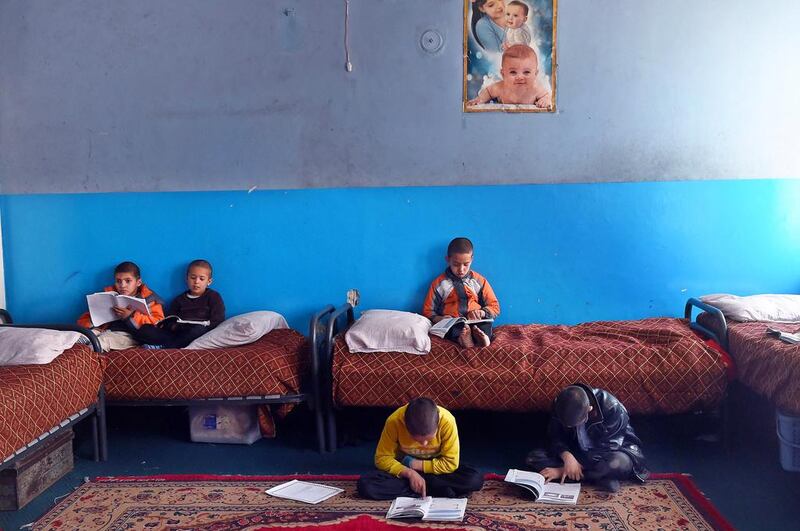KABUL // International aid was meant to transform Afghanistan’s welfare standards, but orphanages in Kabul reveal that the most vulnerable children, many left parentless by war, have seen little benefit from the billions of dollars spent.
At Windows of Hope, an orphanage in the capital Kabul, organisers and volunteers make the best of a tiny budget to look after 12 children, most of them severely disabled.
Despite spartan conditions, house manager Frozan provides basic comfort and security for youngsters left neglected by the foreign-funded Afghan government and the many international charities that are active in the country.
“These are the children who do not have anyone who cares for them,” Frozan, 22, said. “Many are victims of war, because they have lost their families. They have suffered, they have mental issues, and their relatives are not prepared to keep them.”
The US-led international intervention in Afghanistan, beginning in 2001, combined a military campaign against the Taliban with a massive aid development programme.
New schools, hospitals, roads and power stations have been built, and funds provided for projects ranging from adult literacy classes and internet start-ups to pomegranate farms and handicraft workshops.
The US Agency for International Development (USAID) alone has spent US$15 billion (Dh55.1bn) since 2001.
But the impact has been limited, with infrastructure and social care still feeble even in the cities.
Sami Hashemi, a Kabul-based Unicef child protection specialist, is blunt in his assessment of how orphans are treated in Afghanistan.
“Orphanages are not providing service to the most vulnerable children,” he said. “What are the gap of services? We need to identify them.
To make matters worse, aid funding to Afghanistan is set to fall in the coming years after the US-led Nato war came to an end last month.
Adjusting to an even more challenging era, Windows of Hope is seeking funds from the government and Afghan community groups, rather than relying on the occasional foreign grants that have kept it open in recent years.
But the government’s 30 public orphanages are often beset by corruption, and they highlight the government’s inability to distribute funds to those who need it most.
Sayed Abdullah Hashimi, director of public orphanages, admits that some Afghan parents with connections use government orphanages to house and educate their children – meaning real orphans are denied scarce resources.
He also says the government allocates 85 Afghanis (Dh5.4) per day to feed each child in state orphanages, but that only 50 Afghanis reach their intended destination due to bureaucracy and corruption.
The flood of money since 2001 created an endemic culture of corruption in Afghanistan, with Transparency International rating the country better only than Sudan, North Korea and Somalia.
President Ashraf Ghani, who came to power in September, has vowed to crack down on fraud, but it is a mountainous task – not least when it comes to making lives better for the estimated 110,000 orphans in Afghanistan, 12 per cent of whom are in orphanages.
“If the people who are working for the children are corrupt, we cannot help the children even if we reform the system,” Mr Hashimi said.
* Agence France-Presse





